Keywords: Industrial
There are more than 200 results, only the first 200 are displayed here.
-

INTERNATIONAL
- J. R. Hennessy
- 19 February 2016
24 Comments
The aftershocks of the late-century push for liberalisation and the GFC have bred generations of dislocated voters who seek answers outside of the limited solutions of centrist governance. This provides ample opportunity for true progressive change, as seen in Europe and Latin America, and now the US and UK. Where's Australia? Nowhere to be seen. It is hard to imagine a truly progressive candidate emerging from our ossified political structures. There are a few reasons for this.
READ MORE 
-

AUSTRALIA
- Andrew Hamilton
- 28 January 2016
4 Comments
The two major challenges facing the world have to do with kindness to strangers and care for the natural world. If the image of the beginnings of Australia is of a boatload of powerful Europeans coming to exploit the land occupied by a primitive people, a better image of future Australia Days might be of Australia sending parties to Indigenous settlements and other nations to discover how to cooperate in the great projects of reconciliation between people and people with nature.
READ MORE 
-
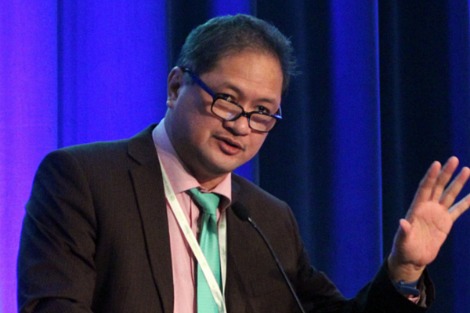
ENVIRONMENT
- Fatima Measham
- 18 December 2015
5 Comments
It has been an exercise in managing optimism and reality in the week after the Paris Agreement on climate change. One thing that can be certain is that COP21 is pivotal in terms of the model it offers for solutions to global problems. The Paris summit departed from a top-down approach, enabling the 43-member Climate Vulnerable Forum, led by current country-chair the Philippines, to work persuasively. 'We were more united,' says Tony La Viña, dean of the Ateneo School of Government in Manila.
READ MORE 
-

AUSTRALIA
- Lisa Stewart
- 07 December 2015
14 Comments
The first thing I see is a familiar tableau: Mother and Child, seated, the sweep of the lines of the mother's body sculpting a circle of security and warmth around the gentle wrigglings of her baby. Except that this is no Christian Madonna, but a young Muslim woman in her early 30s, quiet, gentle and shy. Seated on her lap is her little child who has my heart the minute I lock eyes with her. Dancing around her is a skinny, black-haired seven-year-old girl with the same smile, and far too much energy for the space permitted her.
READ MORE 
-

ARTS AND CULTURE
- Charlotte Howell
- 02 December 2015
1 Comment
I was born into a working class family in Leyton, East London. But in the late 1980s, gentrification in the area forced us to relocate to the poor working class town of Harlow, Essex. In a twist of fate, these days I can't even afford to live there. This time it is not due to gentrification brought about by 'hipster' entrepreneurs, but because powerful construction companies have replaced the historical architecture with new developments and housing estates. I know who I'd rather pick a fight against.
READ MORE 
-

ENVIRONMENT
- David James
- 05 November 2015
2 Comments
In the early 1990s London engineer Allan Jones took the suburb of Woking off the grid by establishing a system of tri-generation, which reduces waste by generating power locally. The Sydney City Council employed Jones in 2009 to bring the same approach to Australia. But regulations from previous eras that greatly favour the incumbent power companies are preventing any meaningful change. Once again we find that the main challenges with tackling global pollution are not technical, but political.
READ MORE 
-
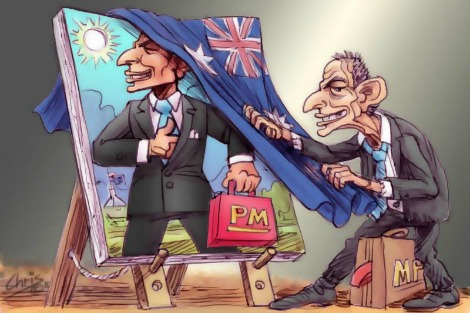
AUSTRALIA
- Fatima Measham
- 12 October 2015
18 Comments
Australia has a long line of prime ministers whose standing has been propped up over time. Edmund Barton was a racist; Alfred Deakin spoke against 'undesirable coloured aliens'. The passage of time tends to extract the essential parts of a prime minister's stint, which is how complex figures like Whitlam, Fraser, Keating and Howard end up being rehabilitated in collective memory. It's hard to tell whether there is enough complexity in Abbott and his time as prime minister to enable such restoration.
READ MORE 
-

ECONOMICS
- David James
- 14 September 2015
1 Comment
The recent ructions in the Chinese stock market set off great consternation in global financial markets, but for the most part this was a display of ignorance. One of the reasons China’s influence on global markets has been so beneficial, since at least 2007, is that its economy and financial markets are so different.
READ MORE 
-
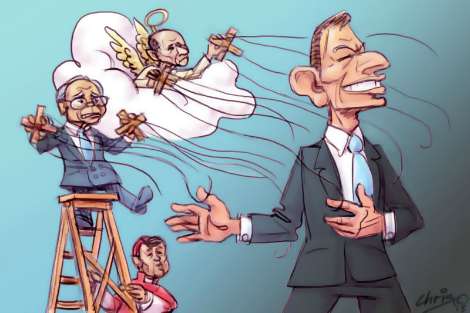
AUSTRALIA
- John Warhurst
- 01 September 2015
18 Comments
There is always an appetite for anything linking Tony Abbott and Bob Santamaria. The journalist in Abbott has encouraged observers to play up the links, even though it has never been entirely clear what he is saying. He has explained that he was impressed as a young man by Santamaria’s courage as an 'advocate for unfashionable truths’, but he also pays his public dues to a number of prominent figures including John Howard, Cardinal George Pell, John Hewson, Bronwyn Bishop and even Pope Benedict XVI.
READ MORE 
-

ARTS AND CULTURE
The fabric over your bed, a life of quilts made simple & held up ... of more than ninety years, taught generation to generation.
READ MORE 
-
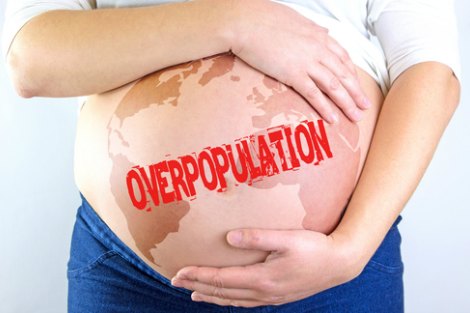
AUSTRALIA
- Andrew Hamilton
- 25 June 2015
23 Comments
In his recent encyclical, Pope Francis demands that, in addressing the needs of the environment, wealthy nations must reform an economic system that perpetuates poverty in the underdeveloped world. In seeking a conversion of heart on the part of those who are wealthy, he sees imposing artificial population control on the world's poor as a thoroughly unfair and unconverted attitude. The real problem is the greed of the rich, not the inability of the poor to control their fertility.
READ MORE 
-
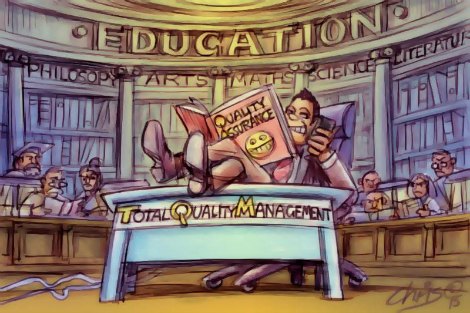
ECONOMICS
Allowing such a flimsy discipline as management to co-opt an area as important as education, as appears to be the trend, is as absurd as it is saddening. Education has been with us for thousands of years and encompasses some of the most profound thinking the civilisation has produced. Management thinking has been with us for a few decades and has accomplished next to nothing.
READ MORE 